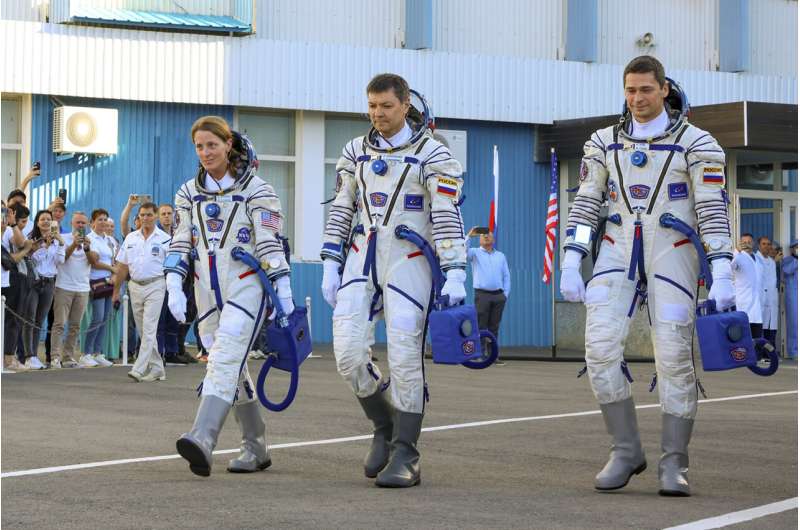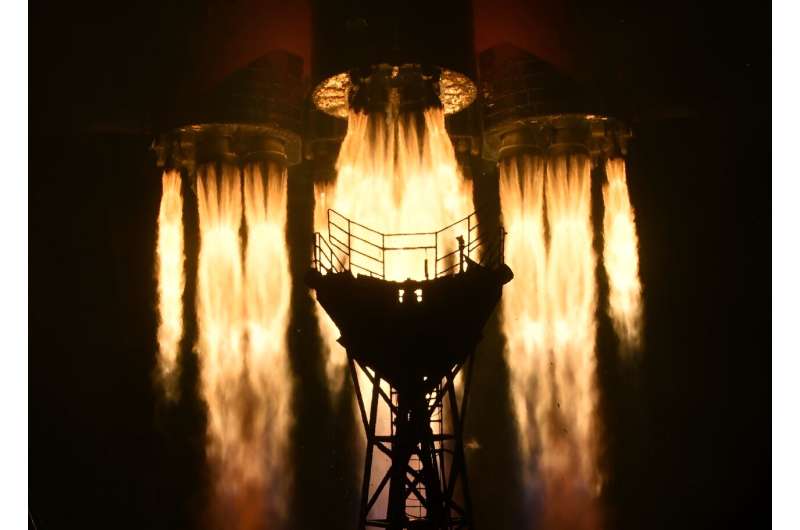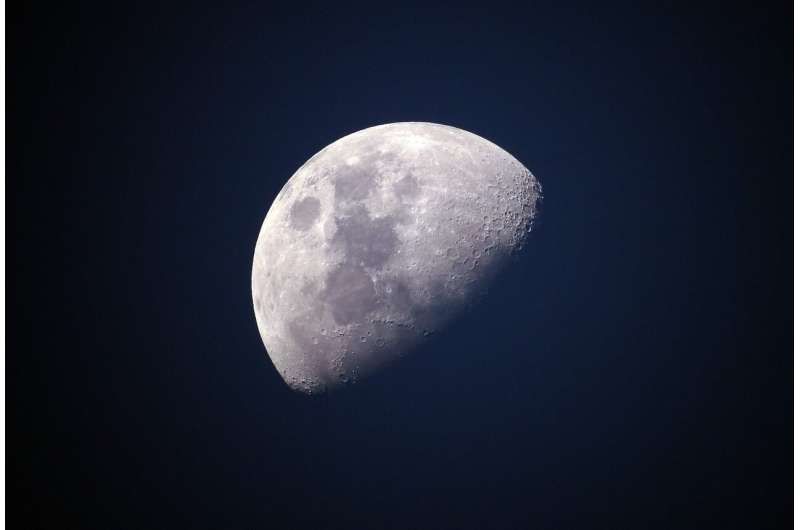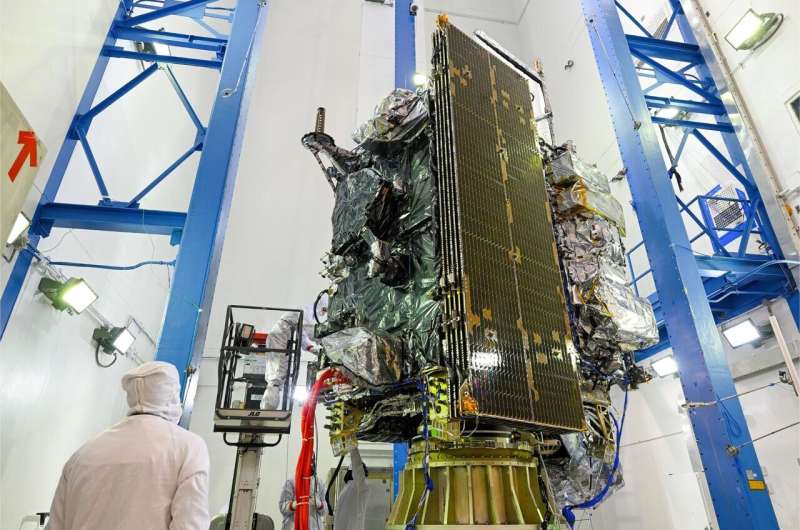
Copernical Team
Supermassive black holes alter galactic chemistry
 New research shows that the supermassive black hole at the center of a galaxy can have a direct impact on the chemical distribution of the host galaxy. This provides another piece of the puzzle for understanding how galaxies evolve.
It is well known that active supermassive black holes can produce major changes their host galaxies by heating up and removing the interstellar gas in the gala
New research shows that the supermassive black hole at the center of a galaxy can have a direct impact on the chemical distribution of the host galaxy. This provides another piece of the puzzle for understanding how galaxies evolve.
It is well known that active supermassive black holes can produce major changes their host galaxies by heating up and removing the interstellar gas in the gala Dusty Skies in the Cloudy Season: Sols 3950-3952
 by Conor Hayes, Graduate Student at York University
Earth planning date: Friday, September 15, 2023: Some days, the process of preparing a plan to be uplinked to our intrepid rover goes beautifully smoothly, with everyone and everything working together in near-perfect synchrony. Other days, it can feel like the entire universe is conspiring against us. Planning today was definitely one of the
by Conor Hayes, Graduate Student at York University
Earth planning date: Friday, September 15, 2023: Some days, the process of preparing a plan to be uplinked to our intrepid rover goes beautifully smoothly, with everyone and everything working together in near-perfect synchrony. Other days, it can feel like the entire universe is conspiring against us. Planning today was definitely one of the Rockets and Porsches: rich Russians flock to Baikonur spaceport
 Everyone should witness a rocket launch in their lifetime, says Yevgeniya Degtyarnikova as she watches the rollout of a Soyuz from its hangar in the vast steppes of Kazakhstan.
"Unfortunately, my husband could not come so I am fulfilling my dream and his," said the 35-year-old from the city of Tyumen in western Siberia.
"I will bring my entire family here. This is the place that everyone
Everyone should witness a rocket launch in their lifetime, says Yevgeniya Degtyarnikova as she watches the rollout of a Soyuz from its hangar in the vast steppes of Kazakhstan.
"Unfortunately, my husband could not come so I am fulfilling my dream and his," said the 35-year-old from the city of Tyumen in western Siberia.
"I will bring my entire family here. This is the place that everyone SpaceX launches 22 Starlink satellites in 65th mission of 2023
 A SpaceX Falcon 9 rocket launched 22 Starlink satellites to low-Earth orbit from Space Launch Complex 40 at Cape Canaveral Space Force Station in Florida late Friday.
The launch at 11:38 p.m. EDT was confirmed by SpaceX, which said it was the fifth flight for the first stage booster used in the mission. It had previously launched Crew-6, SES O3b mPOWER, and two earlier Starlink missions
A SpaceX Falcon 9 rocket launched 22 Starlink satellites to low-Earth orbit from Space Launch Complex 40 at Cape Canaveral Space Force Station in Florida late Friday.
The launch at 11:38 p.m. EDT was confirmed by SpaceX, which said it was the fifth flight for the first stage booster used in the mission. It had previously launched Crew-6, SES O3b mPOWER, and two earlier Starlink missions Soyuz hatch opens, Expedition 69 expands to 10 crewmates
 The hatches between the International Space Station and the newly arrived Soyuz MS-24 spacecraft officially opened at 5:16 p.m. EDT. The arrival of three new crew members to the existing seven people already aboard for Expedition 69 temporarily increases the station's population to 10.
NASA astronaut Loral O'Hara and Roscosmos cosmonauts Oleg Kononenko and Nikolai Chub joined the space sta
The hatches between the International Space Station and the newly arrived Soyuz MS-24 spacecraft officially opened at 5:16 p.m. EDT. The arrival of three new crew members to the existing seven people already aboard for Expedition 69 temporarily increases the station's population to 10.
NASA astronaut Loral O'Hara and Roscosmos cosmonauts Oleg Kononenko and Nikolai Chub joined the space sta RIT collaboration with global team confirms, disproves distant galaxies
 Rochester Institute of Technology scientists have once again used data from the James Webb Space Telescope (JWST) as part of the Cosmic Evolution Early Release Science (CEERS) Survey to change the way we think about the universe and its distant galaxies.
Jeyhan Kartaltepe, associate professor in the School of Physics and Astronomy, and Rebecca Larson, postdoctoral research associate, co-au
Rochester Institute of Technology scientists have once again used data from the James Webb Space Telescope (JWST) as part of the Cosmic Evolution Early Release Science (CEERS) Survey to change the way we think about the universe and its distant galaxies.
Jeyhan Kartaltepe, associate professor in the School of Physics and Astronomy, and Rebecca Larson, postdoctoral research associate, co-au One American, two Russians ride Russian capsule to the International Space Station

One American and two Russians blasted off Friday aboard a Russian spacecraft on a quick trip to the International Space Station.
Two Russians, American reach space station

Two Russian cosmonauts and an American astronaut docked with the International Space Station on Friday after blasting off amid raging tensions between Moscow and Washington over Ukraine.
Earlier Friday Roscosmos cosmonauts Oleg Kononenko and Nikolai Chub and NASA astronaut Loral O'Hara lifted off from the Baikonur cosmodrome in Kazakhstan aboard the Soyuz MS-24 spacecraft.
The crew docked at the ISS three hours later, the Russian space agency said.
At the orbiting station, the trio will join three Russians, two Americans, a Japanese astronaut and a representative of the European Space Agency.
The liftoff took place after Russia's first lunar mission in nearly 50 years failed last month.
The ISS is a rare venue for cooperation between the United States and Russia, whose ties broke down after Moscow unleashed its offensive in Ukraine last year.
Exploring the lunar south pole: Lessons from Chandrayaan-3

On August 23 the Indian Space Research Organisation (ISRO) successfully landed a spacecraft on the moon's south pole, a location that has always been of particular interest to scientists due to the unique conditions created by the planet's extremities.
The moon rover, Chandrayaan-3, which recently completed its 14-day mission, made history by landing on the lunar south pole. Dr. Laura McKemmish, an astrochemist from UNSW Sydney, explains the significance of the mission and what the future holds for lunar exploration.
"This is the first landing of India on the moon, and it will make India the fourth country ever to land on the moon," says Dr. McKemmish. "The ability of our global civilization to go into space exploration is really, really crucial to enable humankind as a global community to explore elsewhere in the universe."
Interest in the southern pole of the moon stems primarily from the fact that scientists have been aware of the presence of frozen water there, and locating water is a large part of Chandrayaan-3's mission. "Identifying frozen bodies of water on the moon is a really important gateway for further space discovery in our solar system.
NOAA's GOES-U completes environmental testing

GOES-U, the fourth and final satellite in NOAA's GOES-R Series of advanced geostationary satellites, recently completed rigorous testing to ensure it can withstand the harsh conditions of launch and orbiting in space 22,236 miles above Earth.
The testing process spanned nearly a year. During thermal vacuum testing, completed in November 2022, GOES-U was placed in a large 29-foot wide by 65-foot deep (9 meter by 20 meter) chamber and subjected to a vast range of temperatures, soaring as high as 188 degrees Fahrenheit (87 degrees Celsius) and dropping as low as minus 67 degrees Fahrenheit (minus 55 degrees Celsius) to simulate the extreme temperatures of launch and the space environment.
In February 2023, GOES-U completed vibration testing, which mimics the stresses it will experience during launch to ensure the satellite doesn't have structural weaknesses.

